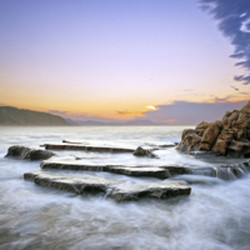Microorganisms and biogeochemical processes
Traditional biogeochemical studies have cultured and investigated microorganisms away from their environment. But, these cultured microbes only represent a tiny fraction (less than 1 %) of the actual existing diversity. Fortunately, advances in gene sequencing technology have dramatically improved, enabling scientists to study the diversity of uncultured microorganisms and their role in biogeochemical processes. FUNDIVERDSITY used gene sequencing technology to investigate the role of marine bacteria from a coastal ecosystem in the Bay of Biscay. The study site was regularly sampled for physical, chemical and biological variables. Researchers investigated whether different taxa of microorganisms were unique or whether they played a similar role in an ecosystem. This similarity in role is known as redundancy. Cutting-edge analytical tools such as metagenomics and pyrosequencing were used to analyse the structure of bacteria. Project partners tested whether the diversity of bacteria changed over the seasons and whether these changes were related to environmental or biological parameters. Scientists then investigated whether these changes affected biogeochemical cycling. Results suggested that a large proportion of bacterial taxa can be accurately predicted according to their environmental conditions. They also indicated the level of redundancy in this coastal ecosystem. Researchers positively correlated a large number of bacterial taxa with temperature, nutrient concentration and water column mixing. This provided clues as to the role of microbial taxa in the ecosystem. Researchers investigated whether some ecosystem processes represent a common metabolic strategy among different types of microorganisms. They also identified key bacterial populations involved in biogeochemical sampling at the study site. The work of FUNDIVERSITY in identifying microorganisms and their ecological characteristics will help scientists better understand their role in biogeochemical cycling. It will also help improve the predictions of models and provide a clearer picture of how marine ecosystems respond to global warming.







